Podcast: Play in new window | Download (Duration: 36:21 — 25.1MB) | Embed
Subscribe: Apple Podcasts | Spotify | Amazon Music | Android | Pandora | iHeartRadio | JioSaavn | Podchaser | Gaana | Podcast Index | Email | TuneIn | Deezer | Anghami | RSS | More

Why We Think What We Think by Dan LeRoy on Inside the Pages with Kris McGregor
In this episode of Inside the Pages with Kris McGregor, guest Dan LeRoy discusses his book, which explores the decline of philosophical thinking in the Western world. They discuss the importance of philosophy for fostering critical thinking and understanding cultural shifts. LeRoy critiques modern philosophy for becoming disconnected from practical realities, arguing that it has contributed to societal confusion and dissatisfaction.
They explore historical and philosophical influences, highlighting how figures like Socrates, Plato, Aristotle, and later, St. Augustine and St. Thomas Aquinas, have shaped Western thought. The discussion emphasizes the enduring relevance of classical philosophers and the consequences of abandoning their teachings in modern times. LeRoy argues that reconnecting with these foundational ideas is essential for addressing contemporary issues and achieving true happiness, which aligns with the pursuit of virtue and truth.
LeRoy also critiques modern philosophical trends that prioritize individual happiness over communal responsibility, linking these trends to broader societal unhappiness. The conversation underscores the need for a philosophical renaissance that embraces ancient and medieval thinkers’ rigorous, virtue-oriented approach to remedying modern existential and ethical dilemmas.
You can find the book here.
Discerning Hearts Reflection Questions:
- Personal Reflection on Philosophy: How does your understanding of philosophy align with the perspectives shared by Dan Leroy? In what ways can you incorporate philosophical thinking into your daily life to make more informed, virtuous decisions?
- Role of Virtue: How do you define virtue in your own life? Reflect on how the pursuit of virtue can lead to greater happiness and fulfillment, as discussed by LeRoy. Are there areas in your life where you could strive more actively for virtue?
- Influence of Historical Philosophers: Consider the impact of philosophers like Socrates, Plato, Aristotle, St. Augustine, and St. Thomas Aquinas on your own understanding of the world. How do their teachings on truth and virtue resonate with your personal beliefs and practices?
- Modern Philosophy’s Disconnect: LeRoy discusses the disconnect of modern philosophy from practical and ethical concerns. Reflect on any modern philosophical ideas or movements you are aware of. Do you agree that they are disconnected from “real-world” applications? Why or why not?
- Critical Thinking in Culture: In what ways do you think critical thinking is lacking in today’s culture? How can the revival of classical philosophical principles contribute to solving contemporary problems?
- Philosophy and the Catholic Faith: Reflect on how philosophy can complement your Catholic faith. How can embracing philosophical inquiry enhance your spiritual life and your understanding of Catholic teachings?
- Community and Individualism: Reflect on the tension between individualism and community responsibilities as discussed in the episode. How do you balance personal freedom with communal obligations in your own life?
- Pursuit of Truth and Happiness: How does your pursuit of truth impact your happiness? Do you agree with the assertion that true happiness comes from fulfilling our purpose and seeking virtue? Why or why not?
- Engagement with Philosophical Texts: Are there philosophical texts or thinkers you have been meaning to explore? What might be holding you back, and how could engaging with these materials enrich your intellectual and spiritual life?
- Action Steps: Based on the discussion in the podcast, what are some practical steps you can take to deepen your philosophical understanding and apply it to your life challenges?
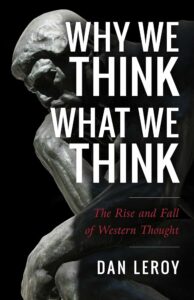 From the book’s description:
From the book’s description:
We’re all starting to hear people ask how the world has gotten to be the way it is. Grafted onto the usual complaints about why people are so greedy, self-absorbed, and callous toward one another are new expressions of frustration about even more fundamental concerns. Why can’t we agree on concepts that used to be basic common sense? Why does our very language now seem to be a minefield that only the most wily and tactical (or cynical) among us can navigate?
The only way to understand fully how we have arrived at this state — and what, if anything, we might be able to do about it — is to embark on a journey back in time to see where we went off the rails. With candor and occasional humor, Dan LeRoy tells the sweeping story of Western thought from its beginnings to the present, revealing the souls and idiosyncrasies of its greatest thinkers. Through stirring vignettes, he tells the real story of how our customs and thought patterns developed and then relates it to our current moment of rupture.
In pages that sometimes read like an Indiana Jones adventure, LeRoy explains the detour that philosophy took nearly a thousand years ago that has led Western society to its current, dire situation. With sharp pen and clear eye, he reveals:
- The roots of classical philosophy, including empiricism (Ready to wade into the water?)
- How views on ethics and morality began to take shape even before Christ
- The three ways to attain happiness, according to the Big Three philosophers
- Four splinter groups and how their philosophies impact us today
- The enduring teachings of Sts. Augustine and Aquinas, among many others
About the Author
Dan LeRoy is an author, journalist and teacher who has been the director of the Writing and Publishing Department at Lincoln Park Performing Arts Charter School in Midland, Pennsylvania, since 2006. His writing about music and politics has appeared in the New York Times, Rolling Stone, Newsweek, the Village Voice, Alternative Press, Esquire, and National Review Online.


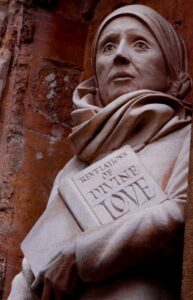 Primary Source:
Primary Source:
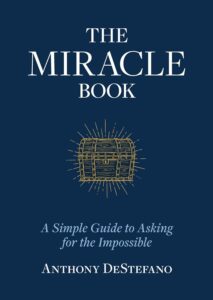
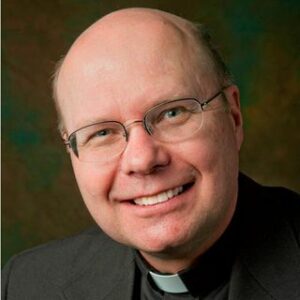 Fr. James Kubicki S.J. – A Heart on Fire on Inside the Pages with Kris McGregor
Fr. James Kubicki S.J. – A Heart on Fire on Inside the Pages with Kris McGregor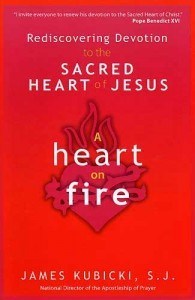

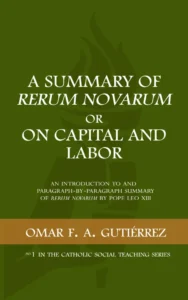

 From the book’s description:
From the book’s description:
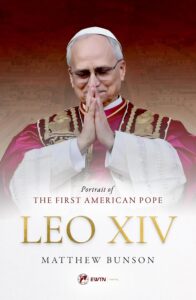 From the book’s description:
From the book’s description: